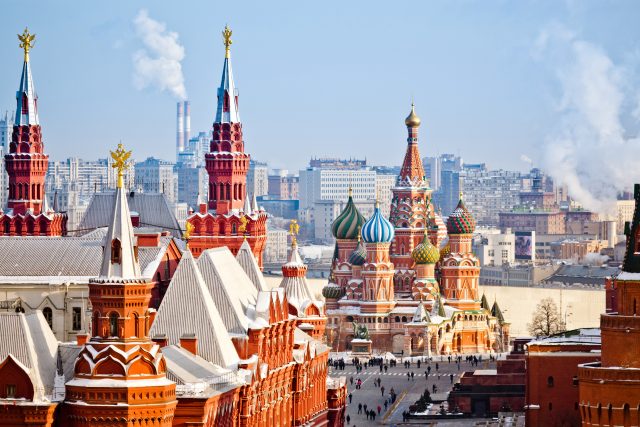Pernod Ricard exits Russia
Pernod Ricard, the world’s second largest premium drinks group, has ceased exporting to Russia and will end distribution of its entire portfolio in the country.

The decisive move from Pernod Ricard will mean some 300 job losses at its Russian subsidiary, something the company says it “tried hard to avoid.”
Pernod Ricard says it will “do its best” for those affected but a “tiny” team will remain in place as ending distribution of some local brands such as the Armenian brandy Ararat will take “some months” to complete.
The decision to end sales and distribution in Russia was made after the French group faced a barrage of criticism following the news last month that it had resumed limited shipments of Absolut vodka and its other major international brands to Russia.
Ironically, the volume of Absolut sold in Russia before the sanctions were imposed has been described by insiders as “tiny”.
The company says the complexity of the situation meant that it had to take decisions “to protect our people and our brands”.
Like other major European drinks groups, Pernod Ricard had complied fully with all sanctions imposed on Russia by the European Union following the spring 2022 invasion of Ukraine, ending all supplies to the country.
Then a few weeks ago it made minimal shipments to allow its Russian subsidiary to protect local employees from possible criminal sanctions.
In a statement made earlier this month, Pernod Ricard said: “In fully complying with all international sanctions we significantly reduced the number and quantity of brands imported [to Russia] to a level that enabled us to protect our local teams, their livelihoods, and the welfare of their families.”
If Pernod Ricard had not sent some stocks to its Russian subsidiary, its 300 staff in the country could have faced criminal prosecution for allowing the local company to go into “intentional bankruptcy”.
But that did not placate the critics, especially in Sweden, the home of Absolut. Pernod Ricard was threatened by a boycott of its portfolio both there and in Finland, and the Swedish prime minister Ulf Kristersson added his weight to the protests.
In the Irish Republic, the Ukrainian ambassador demanded that supplies to Russia of Jameson’s, the world’s best selling Irish whiskey, be halted. Irish politicians also weighed in, urging that Pernod Ricard be placed on an EU sanctions list.
Although other drinks groups privately admit that they have faced similar dilemmas, Pernod Ricard bore the brunt of the objections to its minimal trading in Russia and was forced by public opinion into making a U-turn.
In a statement on its website the French company says it “has stopped all exports of its international brands to Russia at the end of April 2023.
“We will also cease the distribution of our portfolio in Russia, a process that we anticipate will take some months to complete.
Partner Content
“We are assessing how to adapt our local organisation in light of these decisions, while fully complying with all local legal regulations.
“Since the outbreak of the war our guiding principle has been the welfare of our teams wherever they are based, and we will continue to support our local employees during this process.
No profits
The winding down of Pernod Ricard’s Russian operation will mean it will make no profits in Russia.
Before the international sanctions were imposed, about 3% of its business came from Russia. However, the company’s announcement has had minimal impact on its share price which stands at about €214 and shows a 16% rise so far this year.
Meanwhile, Pernod Ricard’s big international brands continue to appear on Russian shop shelves and to be available online, as do the products of its international competitors who have also complied with the international sanctions on President Putin’s regime.
They are arriving in Russia from the “grey” market of parallel imports from third countries.
One report suggests that a significant supply of Scotch whisky brands is reaching Russia via importers in Latvia and Moldova, who then sell on to Russian entrepreneurs.
While the major drinks groups make efforts to stem this trade, Putin is on record as encouraging it.
Related news
Campari sells Averna and Zedda Piras, raising £88m




